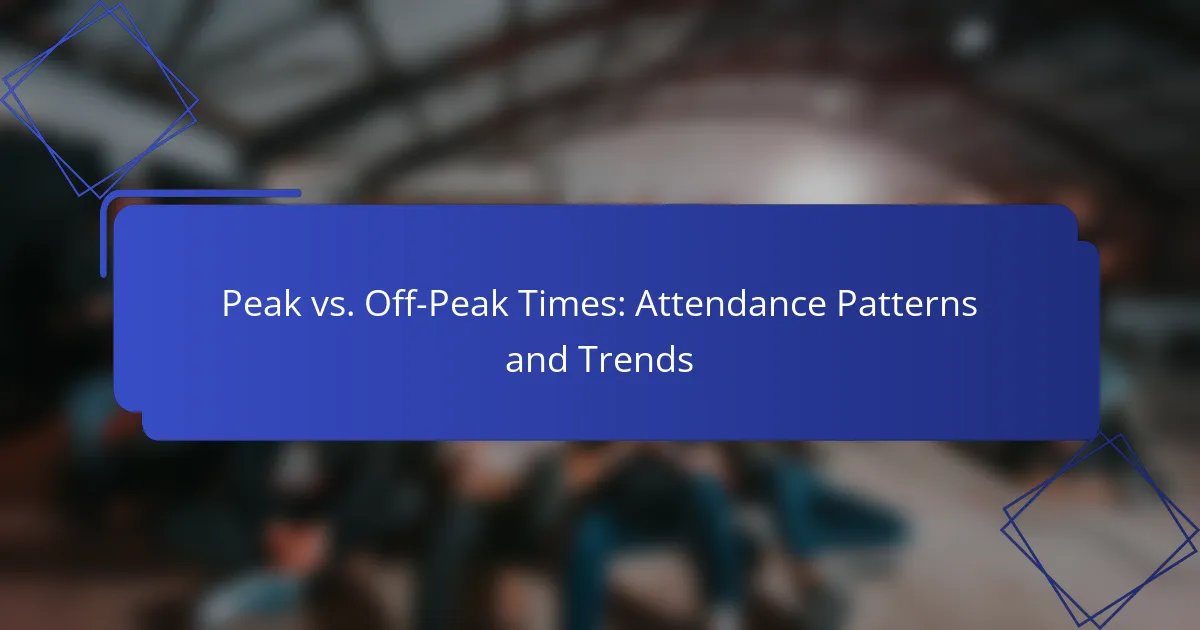Finding last-minute tickets for events in major US cities can be a rewarding experience if approached strategically. By utilizing mobile apps, online platforms, and box office options, you can access tickets for concerts, theater performances, and sporting events at potentially reduced prices. However, it’s essential to be aware of the risks involved, such as higher prices and limited seating, while employing effective strategies like timing and alerts to enhance your chances of success.
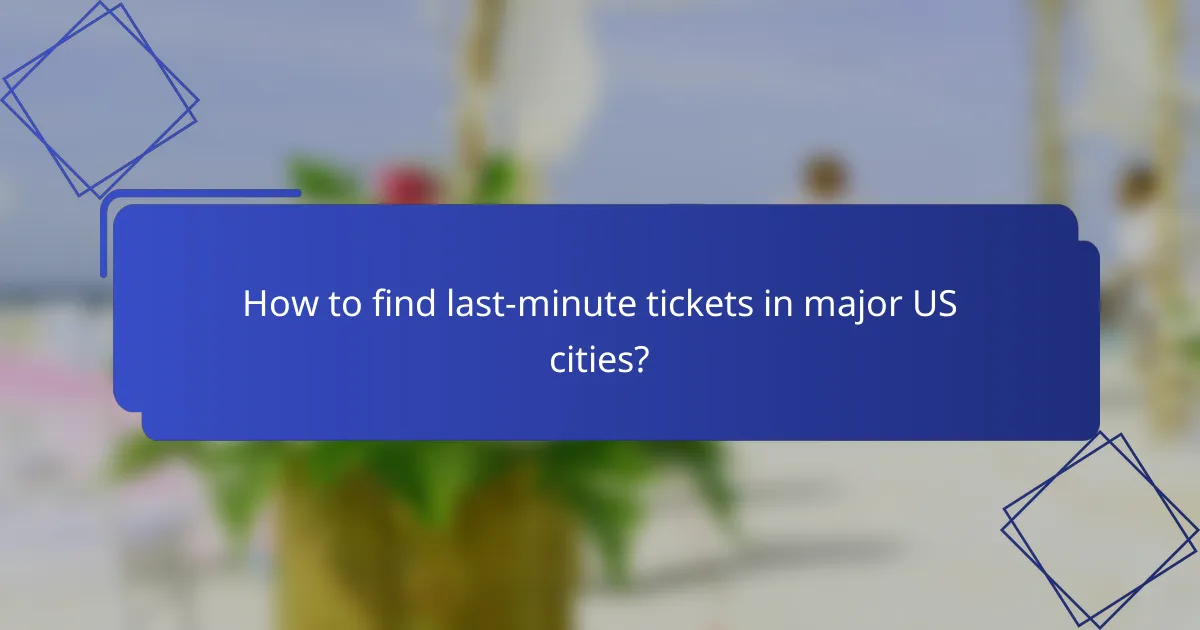
How to find last-minute tickets in major US cities?
Finding last-minute tickets in major US cities involves using a combination of mobile apps, online platforms, and box office options. These methods can help you secure tickets for concerts, theater performances, and sporting events at reduced prices or with immediate availability.
Mobile apps for last-minute tickets
Mobile apps are a convenient way to find last-minute tickets. Popular options include Ticketmaster, StubHub, and SeatGeek, which allow users to browse available tickets in real-time. Many of these apps offer features like price alerts and mobile-only discounts.
When using mobile apps, check for user reviews and ratings to ensure reliability. Additionally, consider enabling notifications for your favorite events to get alerts on price drops or last-minute availability.
Online platforms for discounted tickets
Online platforms like Vivid Seats and TicketsNow specialize in discounted last-minute tickets. These websites aggregate listings from various sellers, providing a wide selection of options. Prices can vary significantly, so it’s wise to compare multiple sites before making a purchase.
Look for special promotions or coupon codes that can further reduce costs. Be aware of service fees, which can add to the final price, and read the terms regarding refunds or exchanges, as last-minute tickets often have stricter policies.
Box office options for immediate purchases
Purchasing tickets directly from the box office is another effective method for securing last-minute tickets. Many venues offer a limited number of tickets at the box office, often at face value, which can be cheaper than online options. Arriving early can increase your chances of getting these tickets.
Check the box office hours and any specific policies regarding last-minute sales. Some venues may have a lottery system for high-demand events, so familiarize yourself with the rules to maximize your chances of success.
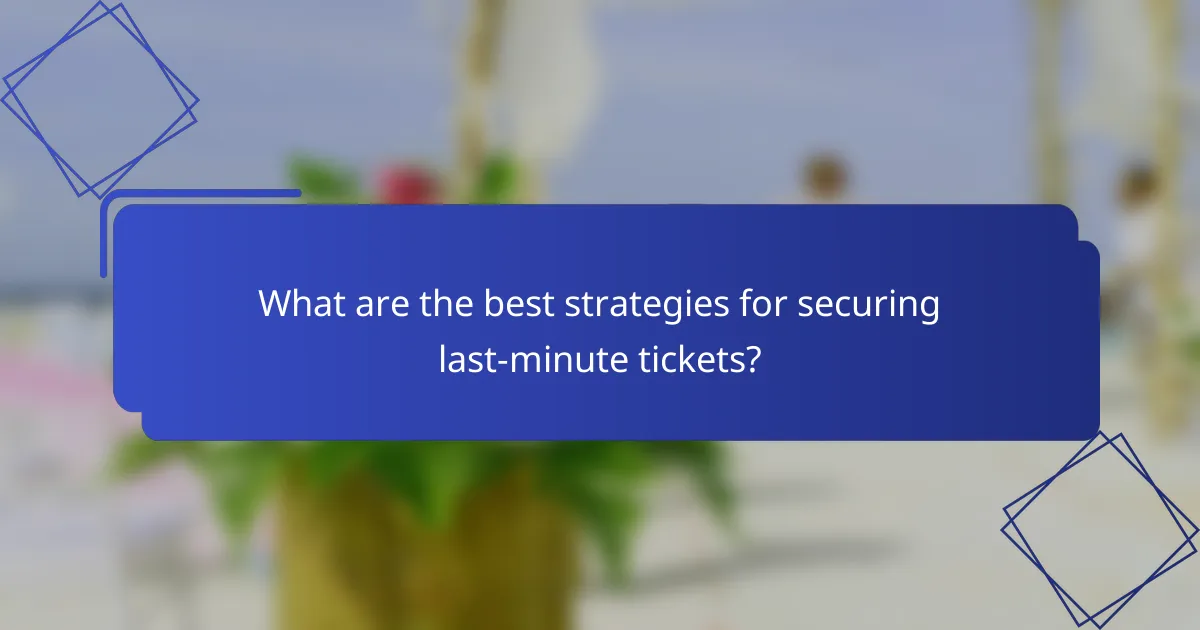
What are the best strategies for securing last-minute tickets?
Securing last-minute tickets can be challenging, but effective strategies can significantly increase your chances. Focus on timing, utilizing alerts, and leveraging social media to find the best deals.
Timing your purchase effectively
Timing is crucial when it comes to purchasing last-minute tickets. Generally, the best time to buy is within a few days to a few hours before the event, as prices often drop significantly as the date approaches. However, this can vary depending on the event type and popularity.
For flights, booking within one to three days before departure can yield lower prices, while concerts or theater shows may see discounts as the event nears. Monitor prices closely to identify the optimal moment to buy.
Using alerts and notifications
Setting up alerts and notifications is a smart way to stay informed about last-minute ticket deals. Many ticketing websites and apps offer features that notify you when prices drop or when tickets become available. This can save you time and ensure you don’t miss out on opportunities.
Consider using platforms like Google Flights for air travel or Ticketmaster for events, where you can customize alerts based on your preferences. Be ready to act quickly, as last-minute deals can disappear fast.
Leveraging social media for deals
Social media can be a valuable tool for finding last-minute ticket deals. Follow event organizers, venues, and ticketing platforms on platforms like Twitter, Facebook, and Instagram to catch exclusive promotions and flash sales. Many organizations post last-minute offers to their followers.
Engage with these accounts and join relevant groups to stay updated. Additionally, consider using hashtags related to your desired event or destination to discover deals shared by other users. This can lead to unexpected savings and opportunities.
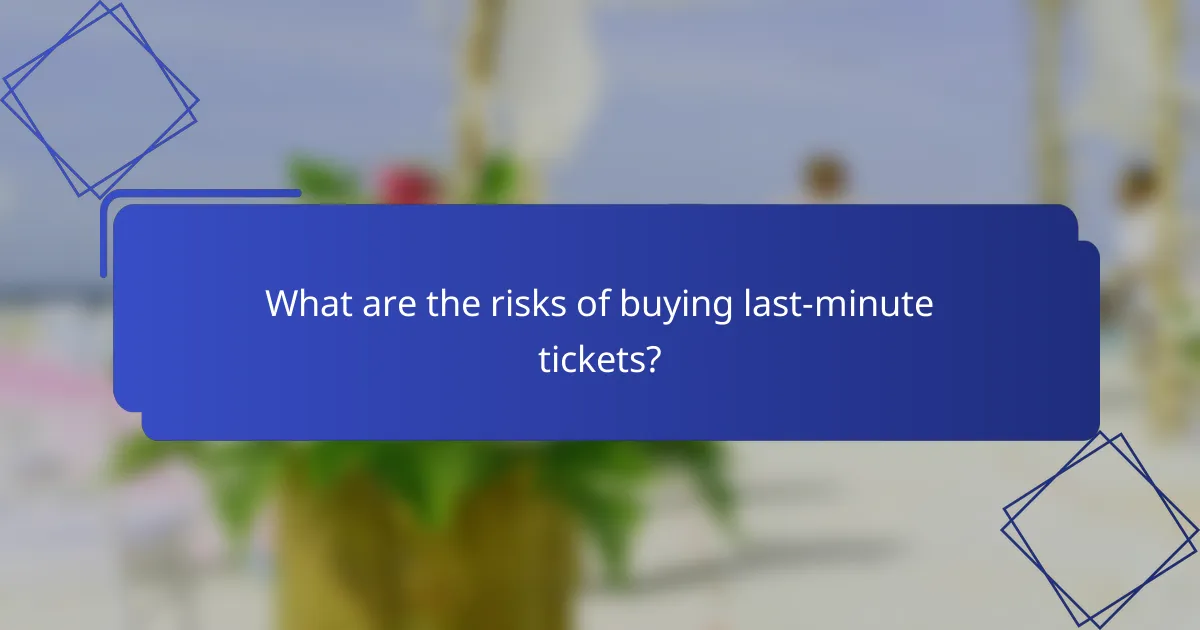
What are the risks of buying last-minute tickets?
Buying last-minute tickets can lead to several risks, including higher prices, limited seating options, and potential scams. Understanding these risks is crucial for making informed decisions when purchasing tickets close to the event date.
Higher prices compared to advance purchases
Last-minute tickets often come with significantly higher prices than those purchased in advance. This price hike can be attributed to demand; as the event date approaches, fewer tickets are available, leading sellers to increase prices. It’s not uncommon to see last-minute tickets priced 20-50% higher than their early-bird counterparts.
To mitigate costs, consider setting alerts on ticketing websites or apps that notify you of price drops or special promotions. This can help you secure a better deal even if you are buying close to the event date.
Limited availability and seating options
When purchasing last-minute tickets, you may face limited availability and fewer seating options. Popular events can sell out quickly, leaving only a few seats available, often in less desirable locations. This can affect your overall experience, especially for concerts or sports events where seating matters.
To improve your chances of finding suitable seats, check multiple platforms and be flexible with your seating preferences. Sometimes, choosing a different section or even a different date can yield better options.
Potential for scams and unreliable sources
Buying last-minute tickets increases the risk of encountering scams or unreliable sellers. Some platforms may not guarantee ticket authenticity, leading to potential financial loss and disappointment at the event. It’s essential to purchase from reputable sources to avoid these pitfalls.
Always verify the legitimacy of the ticket seller, read reviews, and check for secure payment options. If a deal seems too good to be true, it likely is. Stick to well-known ticketing platforms or authorized resellers to ensure a safe transaction.
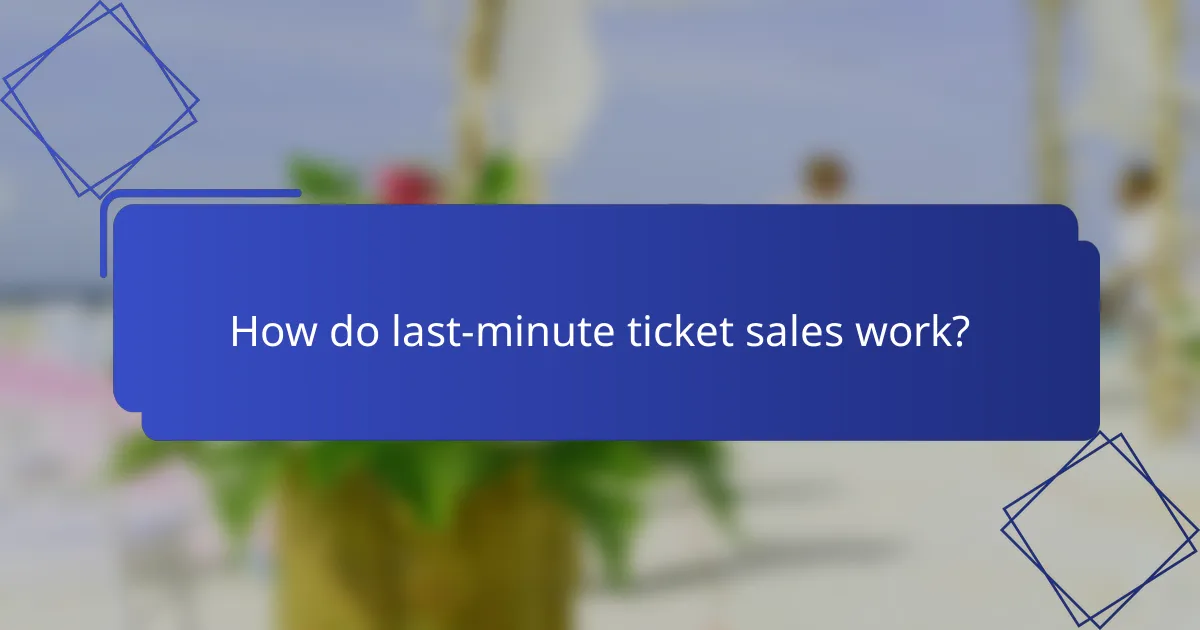
How do last-minute ticket sales work?
Last-minute ticket sales involve selling remaining tickets close to the event date, often at discounted prices. This strategy helps venues fill seats and provides consumers with opportunities to purchase tickets that might otherwise go unsold.
Understanding dynamic pricing models
Dynamic pricing models adjust ticket prices based on demand, time to the event, and remaining inventory. For instance, as an event date approaches, prices may drop significantly if many seats remain unsold. This approach encourages last-minute buyers to take advantage of lower prices.
Consumers should monitor ticket prices regularly, as they can fluctuate widely within days or even hours. Utilizing apps or websites that track price changes can help buyers snag the best deals.
How venues manage unsold inventory
Venues often implement strategies to manage unsold inventory, including promotional offers or bundling tickets with other services, such as parking or concessions. These tactics can help increase the perceived value of the ticket and encourage sales.
Additionally, venues may collaborate with local businesses or use social media to promote last-minute deals, reaching a broader audience. Understanding these strategies can help consumers find better deals as the event approaches.
Role of ticket resellers in the market
Ticket resellers play a significant role in the last-minute ticket sales market by purchasing unsold tickets and reselling them, often at a markup. They provide a platform for buyers looking for last-minute options, but prices can vary widely based on demand and availability.
When considering purchasing from resellers, it’s essential to compare prices across multiple platforms. Some resellers may offer guarantees or refunds, which can provide additional security for buyers. Always check the terms and conditions before making a purchase to avoid unexpected fees.
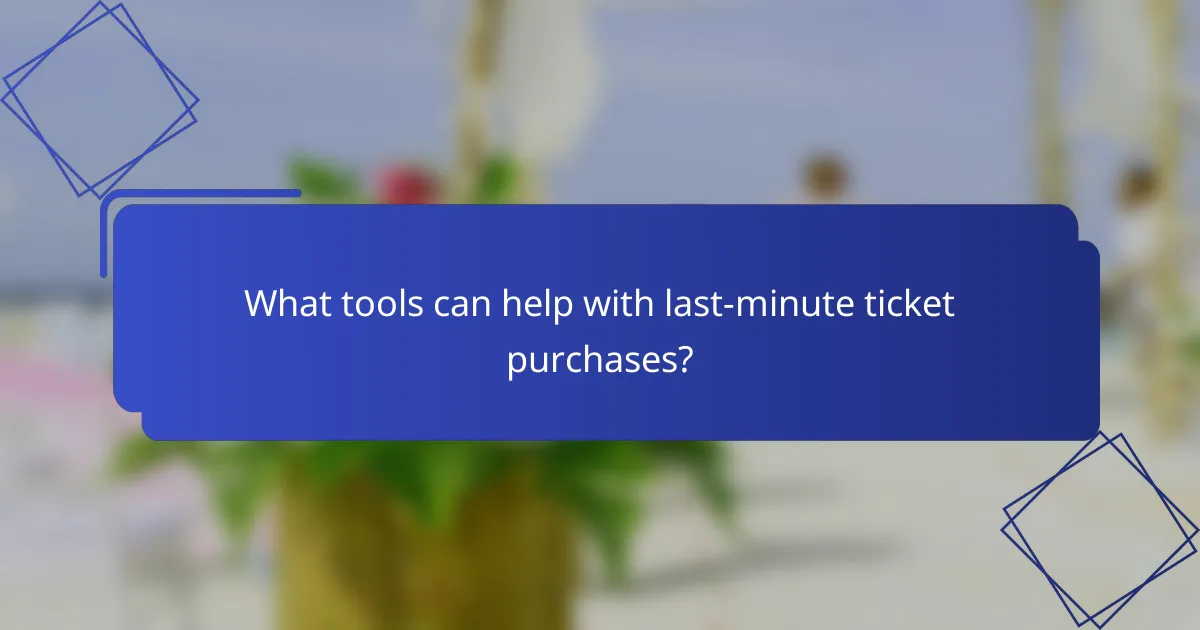
What tools can help with last-minute ticket purchases?
Several tools can assist with last-minute ticket purchases, making it easier to find and secure seats for events. Mobile apps and websites like Ticketmaster, StubHub, and SeatGeek offer features tailored for quick transactions and competitive pricing.
Ticketmaster app features
The Ticketmaster app provides a user-friendly interface for last-minute ticket purchases, allowing users to browse events by date and location. Features like mobile entry and the ability to transfer tickets directly to friends enhance convenience.
Additionally, the app often includes a “Last Minute” section that highlights available tickets at reduced prices, making it easier to find deals. Users can set alerts for specific events to receive notifications when prices drop or new tickets become available.
StubHub’s last-minute deals
StubHub specializes in secondary ticket sales and frequently offers last-minute deals on unsold tickets. Users can filter searches to show only tickets available for immediate purchase, often at discounted rates as the event time approaches.
It’s important to check the seller’s ratings and reviews to ensure a reliable transaction. StubHub also provides a guarantee for ticket authenticity, which adds a layer of security for last-minute buyers.
SeatGeek’s price comparison
SeatGeek aggregates ticket listings from various platforms, allowing users to compare prices for last-minute tickets across multiple vendors. This feature helps buyers find the best deals quickly, especially for popular events where prices can vary significantly.
Users can set up alerts for specific events or teams, ensuring they are notified when prices drop. SeatGeek’s interactive seating chart also allows buyers to visualize their options before making a purchase, enhancing the decision-making process.
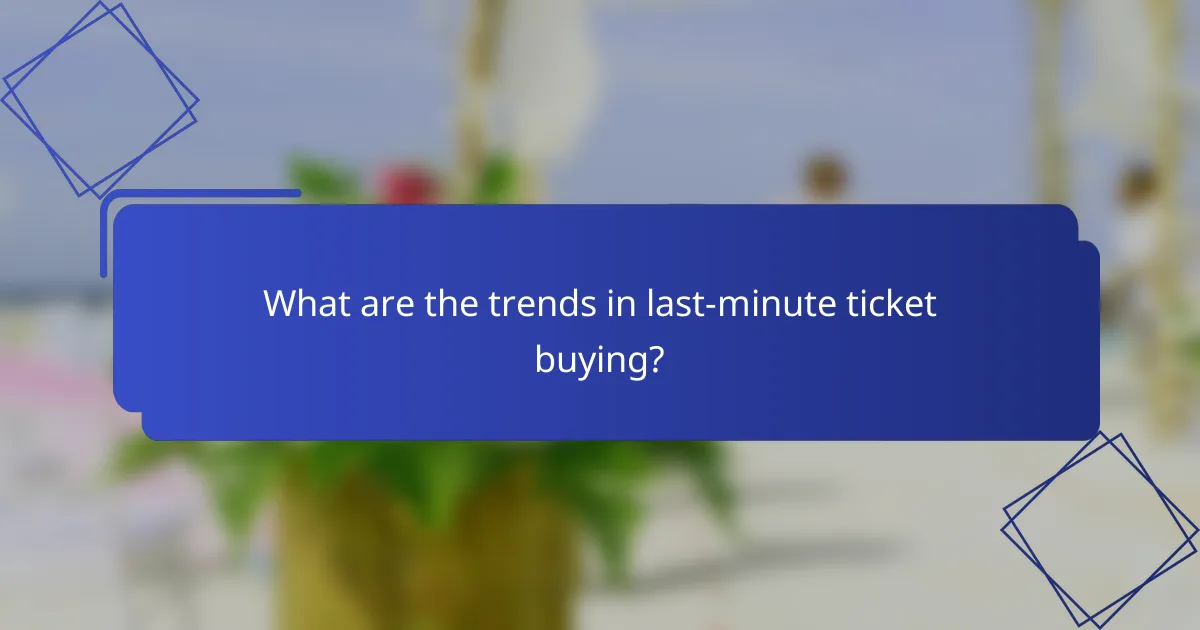
What are the trends in last-minute ticket buying?
Last-minute ticket buying has evolved significantly, with trends reflecting technological advancements and changing consumer behaviors. Key trends include the increased reliance on mobile technology, the rise of flash sales and pop-up events, and the influence of social media on ticket availability.
Increased use of mobile technology
Mobile technology has transformed how consumers purchase last-minute tickets, allowing for immediate access and convenience. Apps and mobile-friendly websites enable users to browse and buy tickets in real-time, often with just a few taps on their smartphones.
Many ticketing platforms now offer notifications for price drops or last-minute availability, making it easier for buyers to seize opportunities. This trend has led to a significant increase in mobile transactions, with estimates suggesting that a large portion of ticket sales now occurs via mobile devices.
Growth of flash sales and pop-up events
Flash sales and pop-up events have gained popularity as a strategy to sell last-minute tickets. These limited-time offers create urgency, encouraging consumers to make quick purchasing decisions. Events may pop up unexpectedly, often in response to demand or availability, making them appealing to spontaneous buyers.
For example, a concert may announce a flash sale for remaining tickets just hours before the show, enticing fans who are nearby. This approach not only boosts ticket sales but also enhances the excitement around events, drawing in larger crowds.
Impact of social media on ticket availability
Social media platforms play a crucial role in the availability of last-minute tickets by facilitating real-time communication and sharing. Event organizers and ticket sellers often use social media to announce last-minute deals, promotions, or ticket releases, reaching a broad audience quickly.
Additionally, users frequently share their own ticket availability or seek last-minute options through social channels, creating a community-driven marketplace. This trend emphasizes the importance of following relevant accounts and groups to stay informed about potential ticket opportunities.


